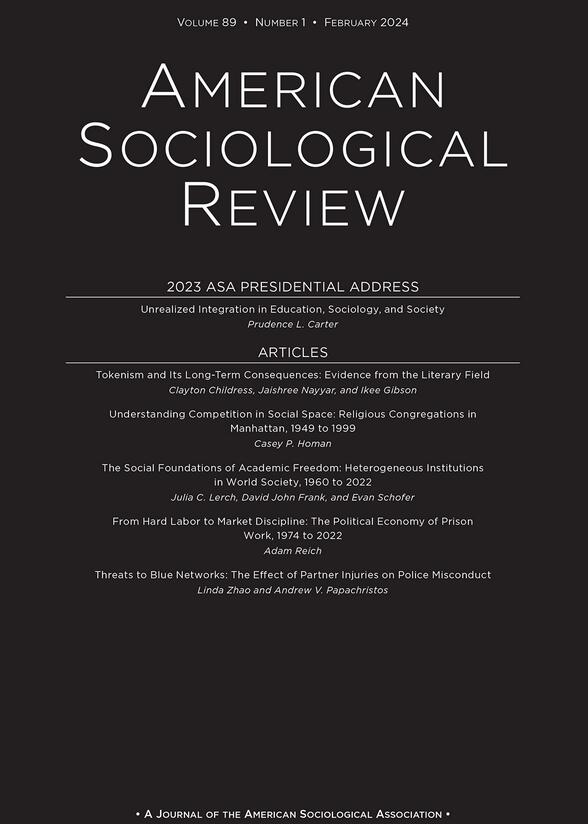Inequality Below the Poverty Line since 1967: The Role of the U.S. Welfare State
IF 6.2
1区 社会学
Q1 SOCIOLOGY
引用次数: 0
Abstract
Since the War on Poverty in the 1960s, the U.S. social safety net has shifted away from direct cash assistance for the lowest-income households and toward tax-based transfers targeted at working families with children. Previous research has assessed this shift by evaluating its effect on the national poverty rate. Doing so, however, overlooks how it may also have led to increased inequality among low-income households. We apply a decomposition framework to measure how changes in taxes/transfers and composition have affected trends in inequality below the poverty line from 1967 to 2019. Income inequality among the poorest households has been volatile since the 1960s, and changes to the American welfare state played a decisive role in expanding or reducing inequality below the poverty line. Unlike in previous decades, after the mid-1990s, the policies that most reduced poverty were also those that most increased inequality among the poor. These findings challenge standard theories regarding the effectiveness of income transfers in reducing poverty by revealing that recent state-led antipoverty efforts have placed the near poor and the deeply poor on divergent paths.1967年以来的贫困线以下的不平等:美国福利国家的作用
自20世纪60年代的“向贫困宣战”以来,美国的社会安全网已经从对最低收入家庭的直接现金援助转向针对有孩子的工薪家庭的基于税收的转移支付。以前的研究通过评估其对国家贫困率的影响来评估这种转变。然而,这样做忽略了它也可能导致低收入家庭之间的不平等加剧。我们采用一个分解框架来衡量1967年至2019年期间税收/转移支付和构成的变化如何影响贫困线以下不平等的趋势。自20世纪60年代以来,最贫困家庭的收入不平等一直不稳定,美国福利国家的变化在扩大或缩小贫困线以下的不平等方面发挥了决定性作用。与过去几十年不同的是,在20世纪90年代中期之后,最能减少贫困的政策同时也是最能加剧穷人之间不平等的政策。这些发现挑战了关于收入转移在减少贫困方面有效性的标准理论,揭示了最近国家主导的反贫困努力已经将接近贫困和极度贫困的人置于不同的道路上。
本文章由计算机程序翻译,如有差异,请以英文原文为准。
求助全文
约1分钟内获得全文
求助全文
来源期刊

American Sociological Review
SOCIOLOGY-
CiteScore
13.30
自引率
3.30%
发文量
35
期刊介绍:
The American Sociological Association (ASA) is a non-profit membership association established in 1905. Its mission is to advance sociology as a scientific discipline and profession that serves the public good. ASA is comprised of approximately 12,000 members including faculty members, researchers, practitioners, and students in the field of sociology. Roughly 20% of the members work in government, business, or non-profit organizations.
One of ASA's primary endeavors is the publication and dissemination of important sociological research. To this end, they founded the American Sociological Review (ASR) in 1936. ASR is the flagship journal of the association and publishes original works that are of general interest and contribute to the advancement of sociology. The journal seeks to publish new theoretical developments, research results that enhance our understanding of fundamental social processes, and significant methodological innovations. ASR welcomes submissions from all areas of sociology, placing an emphasis on exceptional quality.
Aside from ASR, ASA also publishes 14 professional journals and magazines. Additionally, they organize an annual meeting that attracts over 6,000 participants. ASA's membership consists of scholars, professionals, and students dedicated to the study and application of sociology in various domains of society.
 求助内容:
求助内容: 应助结果提醒方式:
应助结果提醒方式:


